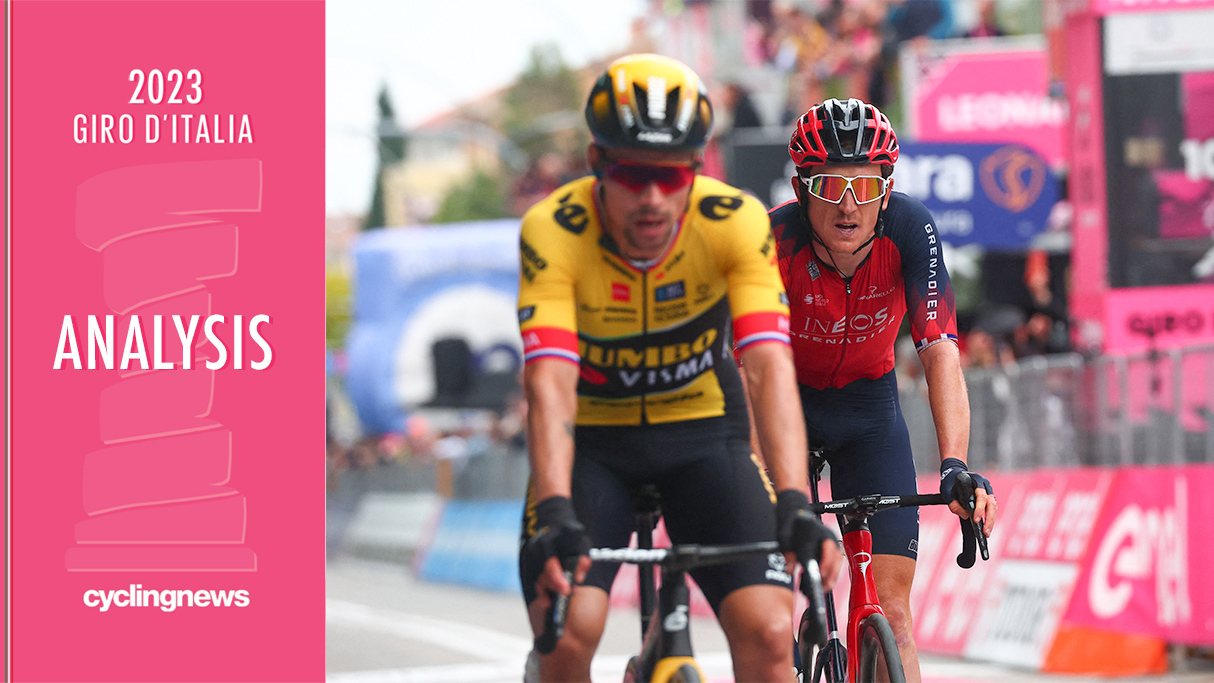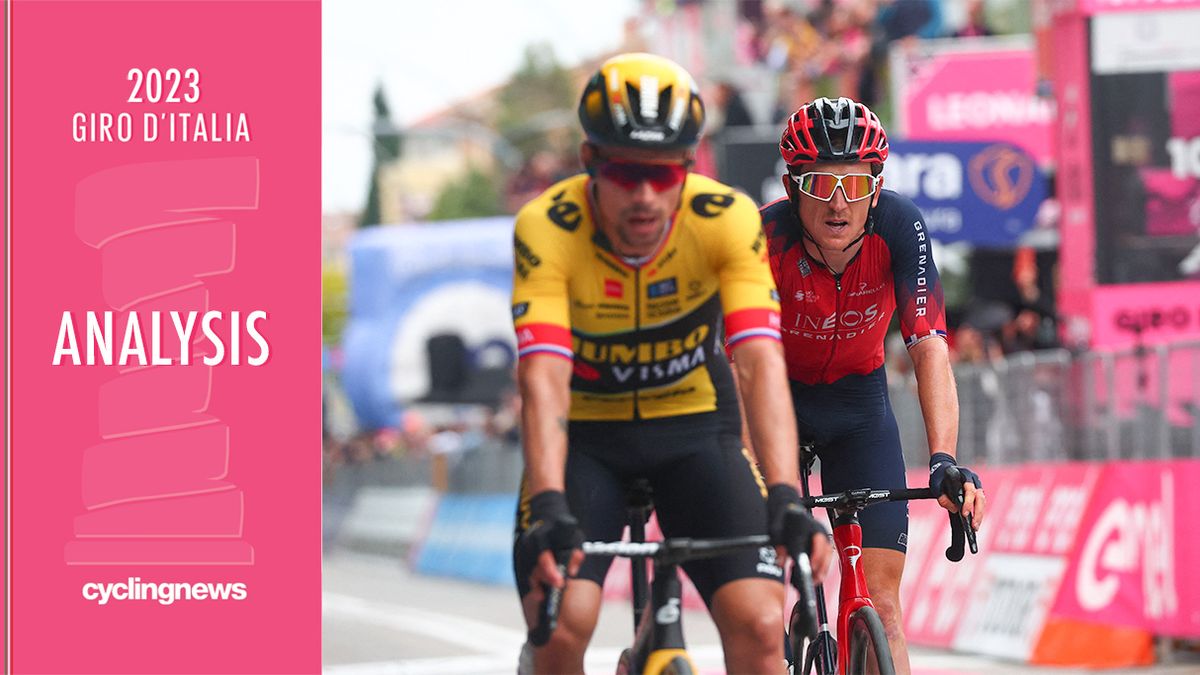
‘Every Grand Tour you ride costs a year of your life’. I remember hearing that nugget of information and pondering if it could possibly be true, and then, a few years later, I did a couple of Grand Tours that felt like they had done precisely that.
I suspect this edition of the Giro d’Italia is doing the very same to so many riders – physically, through illness and crashes, but also mentally, because the continual stresses of surviving each soaking-wet kilometre are enormous.
It’s no surprise that it’s been quiet between the GC contenders, with the scary final week of high mountains looming, and so the only real entertainment has been the cat-and-mouse between the peloton and the daily escapees. As with the opening segment, it’s been advantage to the attackers and, more generally, to the teams less involved in controlling everything with an eye on the overall victory.
EF Education-EasyPost have played a blinder so far, putting guys like Ben Healy and Magnus Cort in the moves, and they still have Hugh Carthy in a good position, so their excellent start to the year continues. Bora-Hansgrohe are in the same situation and have bounced back from the loss of co-leader Alexandr Vlasov with a rampant Nico Denz and his two stage wins in three days.
At least Lennard Kämna doesn’t have to deal with any internal conflicts, unlike the discontent that has bubbled away at UAE Team Emirates, where Jay Vine’s GC chances have disappeared in crashes and sickness. Normally that leaves João Almeida as sole leader, and we would have been none the wiser to the internal politics if Vine hadn’t gotten himself into a bit of a strop.
It wouldn’t be an Italian race without a bit of grumbling between riders, though, and the perfect illustration was Thibaut Pinot and Alexander Cepeda on stage 13 to Crans Montana. The Frenchman ought to have known better than let the Ecuadorian upset him with his lack of cooperation, but his emotional side took over and he messed up, good and proper.
All he had to do was ride a strong tempo, keep control of Cepeda and Einer Rubio, and he would have won the sprint, but predictably he didn’t. The opposing directeurs sportifs behind the trio pressed the right buttons and Pinot ate himself. Rubio watched the drama between his fellow escapees bickering and suitably thanked them for their antics by winning.
Movistar and sensible tactics isn’t a phrase that occurs very often, but they’ve been really effective. And let’s not forget the remaining trio of Soudal-Quickstep riders, who have readapted to the decimation of their number.
It’s quite telling that drier days of the race so far have seen bunch sprints and all the other stages have gone to riders who made their way into the break. The fact that Israel-Premier Tech have been close with Derek Gee on three occasions has marked a distinct change of form for a squad usually known for missing all the moves.
Geogheghan Hart
The big news of the week was, of course, the loss of Tao Geoghegan Hart in a crash that included Primož Roglič and race leader Geraint Thomas. The latter two got up unscathed for once, while Geoghegan Hart ended up in an ambulance and suddenly the dynamics of the GC race had changed completely.
Along with the exit of Remco Evenepoel, this was one of the decisive moments of this Giro and it’s sad that a racing incident removed Ineos Grenadiers’ tactical options for the coming stages. With Thomas’s maglia rosa duties affecting his recovery time each day, it was a disaster they didn’t need, and even though they managed to hand over the race lead to Groupama-FDJ’s Bruno Armirail at the weekend, it hasn’t been a good middle week for the Brits.
They’ve done a lot of work on the front of the peloton and though it might have been a relatively uncomplicated period tactically, the energy consumed does add up. I was surprised Jumbo-Visma didn’t bring down the gap on stage 14 to keep the pressure on Ineos but Roglič has stayed hidden most of the time and the team have been keeping their powder dry as much as possible. Maybe they and Ineos felt sorry for FDJ after the Pinot meltdown, though it’s more likely the avoidance of media and protocol obligations going into the rest day.
As the race heads into the third week, the GC will hopefully really kick into action, and we’ll see proper attacks from the favourites. If the final Bergamo climb is anything to go by, then Roglič, Almeida and Thomas are pretty evenly matched, though lurking in the background is DSM’s Andreas Leknessund. He might fall back on the longer climbs but so far he’s been perfectly capable of following the few key moments.
The weather has obviously been bad up until now, and with the resulting cold winds coming down off the big climbs, the race has been neutralised for the GC contenders, who might have been tempted to try something.
Though this Giro has been dominated more by talk of how mad everyone is with being utterly soaked day in and day out, the stalemate can’t continue. There has to be an end to the general feeling of sadness and bad luck. Cycling definitely needs more Ben Healys.

